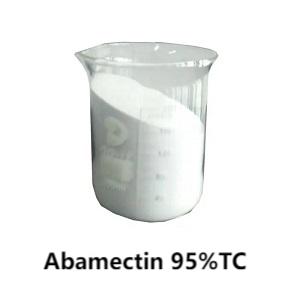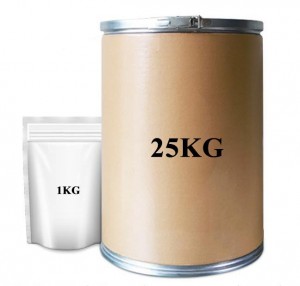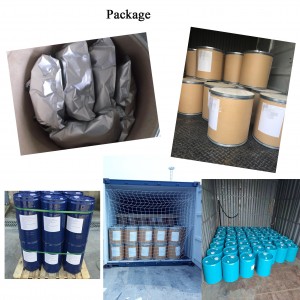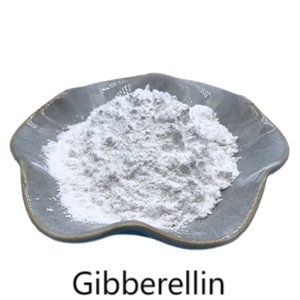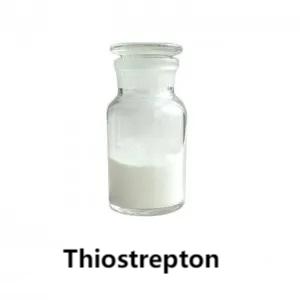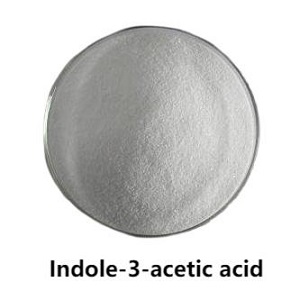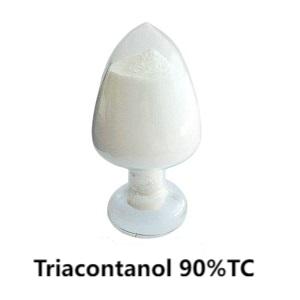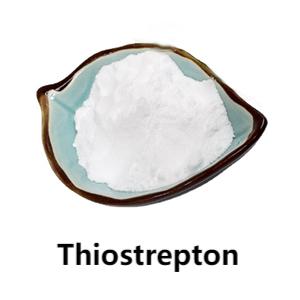Environmental medicine Methylamino abamectin benzoate Exporter
Introduction
Abamectin is a powerful insecticide and acaricide that is widely used in the agricultural industry to control a variety of pests. It was first introduced in the 1980s and has since become one of the most important crop protection tools due to its efficacy and versatility. ABAMECTIN belongs to the avermectin family of compounds, which are produced by fermentation of the soil bacterium Streptomyces avermitilis.
Features
1. Broad Spectrum Control: Abamectin is effective against a wide range of pests, including mites, leafminers, thrips, caterpillars, beetles, and other chewing, sucking, and boring insects. It acts as both a stomach poison and a contact insecticide, delivering quick knockdown and long-lasting control.
2. Systemic Action: Abamectin exhibits translocation within the plant, providing systemic protection to treated foliage. It is rapidly absorbed by leaves and roots, ensuring that pests feeding on any part of the plant are exposed to the active ingredient.
3. Dual Mode of Action: Abamectin exerts its insecticidal and acaricidal effects by targeting the nervous system of pests. It interferes with the movement of chloride ions in nerve cells, eventually leading to paralysis and death of the insect or mite. This unique mode of action helps prevent the development of resistance in target pests.
4. Residual Activity: ABAMECTIN has excellent residual activity, providing protection for an extended period. It remains active on plant surfaces, acting as a barrier against pests and reducing the need for frequent reapplication.
Applications
1. Crop Protection: Abamectin is widely used in the protection of various crops, including fruits, vegetables, ornamentals, and field crops. It effectively controls pests like spider mites, aphids, whiteflies, leafminers, and many other damaging insects.
2. Animal Health: Abamectin is also used in veterinary medicine to control internal and external parasites in livestock and companion animals. It is highly effective against worms, ticks, mites, fleas, and other ectoparasites, making it an essential tool for animal health professionals.
3. Public Health: Abamectin plays a crucial role in public health programs, particularly in the control of vector-borne diseases like malaria and filariasis. It is used in the treatment of mosquito nets, indoor residual spraying, and other strategies to combat disease-transmitting insects.
Using Methods
1. Foliar Application: Abamectin can be applied as a foliar spray using conventional spraying equipment. It is recommended to mix the appropriate amount of the product with water and apply it uniformly to the target plants. The dosage and application interval may vary based on the crop type, pest pressure, and environmental conditions.
2. Soil Application: Abamectin can be applied to the soil around the plants or through irrigation systems to provide systemic control. This method is especially useful for managing soil-dwelling pests, such as nematodes.
3. Compatibility: Abamectin is compatible with many other pesticides and fertilizers, allowing for tank mixing and integrated pest management approaches. However, it is always advisable to perform a small-scale compatibility test before mixing with other products.
4. Safety Precautions: When handling and using Abamectin, it is crucial to follow the safety guidelines provided by the manufacturer. Personal protective equipment, such as gloves and goggles, should be used during the application process. It is also recommended to adhere to the required pre-harvest intervals to ensure compliance with food safety regulations.






